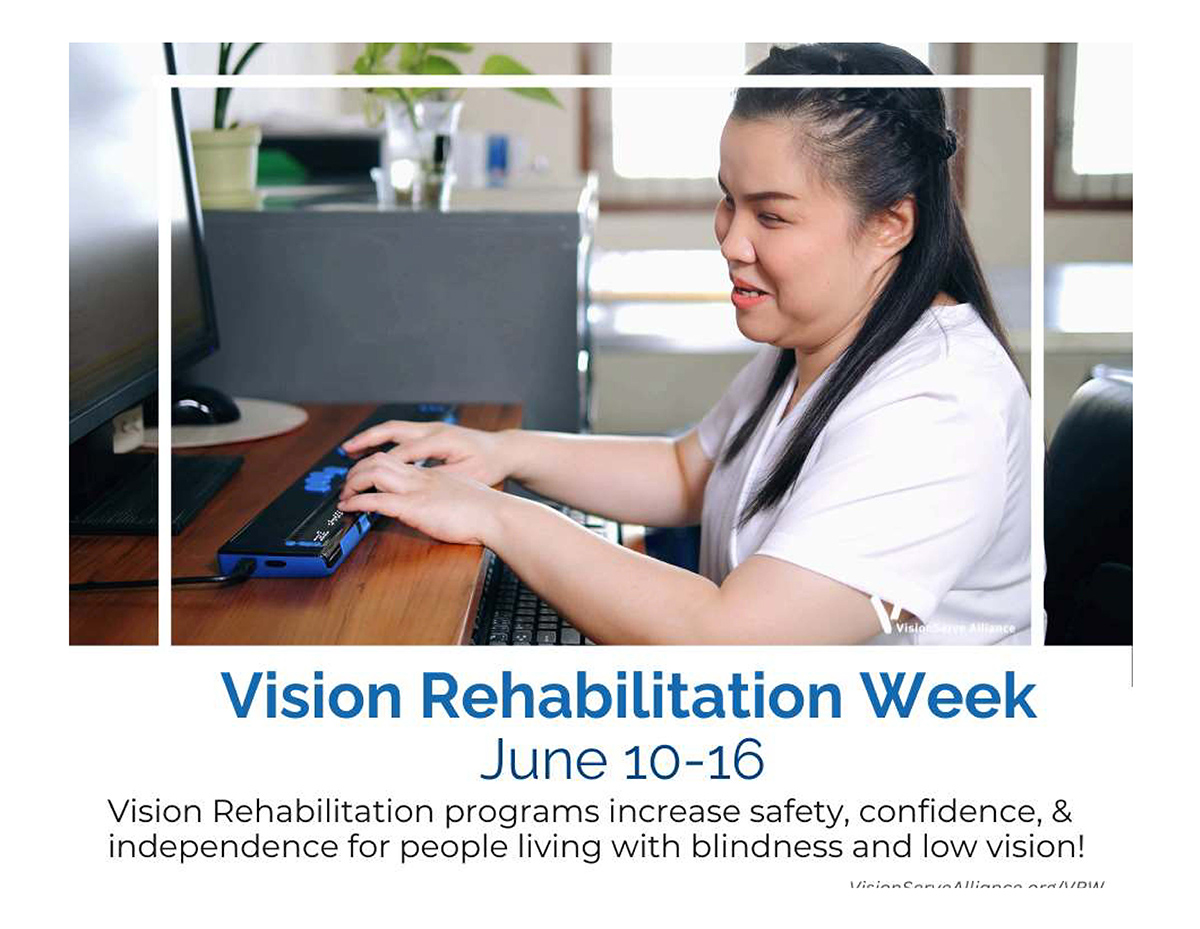During your annual eye exam, it is important to discuss changes in your vision and how this is affecting your daily activities with your optometrist. Some common eye conditions cause difficulties with reading and performing basic tasks around the home, at work, or in school. If your vision is impacting your daily life, your optometrist may suggest low vision services and vision rehab.

What is Vision Rehab?
Since low vision cannot be corrected by standard reading glasses, surgery, or medication, vision rehab services can help you use your remaining vision to the fullest and remain independent. Vision rehab services may include:
- Orientation and mobility training to help you get around your home and out and about safely.
- Assistive technology training to find the right video magnifier, braille display, or text-to-speech device that meets your needs.
- Independent living skills training to learn simple adjustments you can make to help you around the home, such as, improved lighting, color filter lenses, bump dots, and more.
- Emotional support to improve mental health and quality of life.
Why is Vision Rehab Important?
According to VisionServe Alliance; “People experiencing blindness and low vision report increased health issues and disability conditions, with some groups citing more than double the number of days of poor mental health and more than double the rate of depression.” Finding affective ways to continue participating in your favorite activities and living independently will have a positive effect on your overall well-being and mental health.
VisionServe Alliance has declared this week Vision Rehab Week to bring awareness to the importance of Vision Rehabilitation and get those who can benefit from vision rehab the services they need.
Jun 10, 2024


